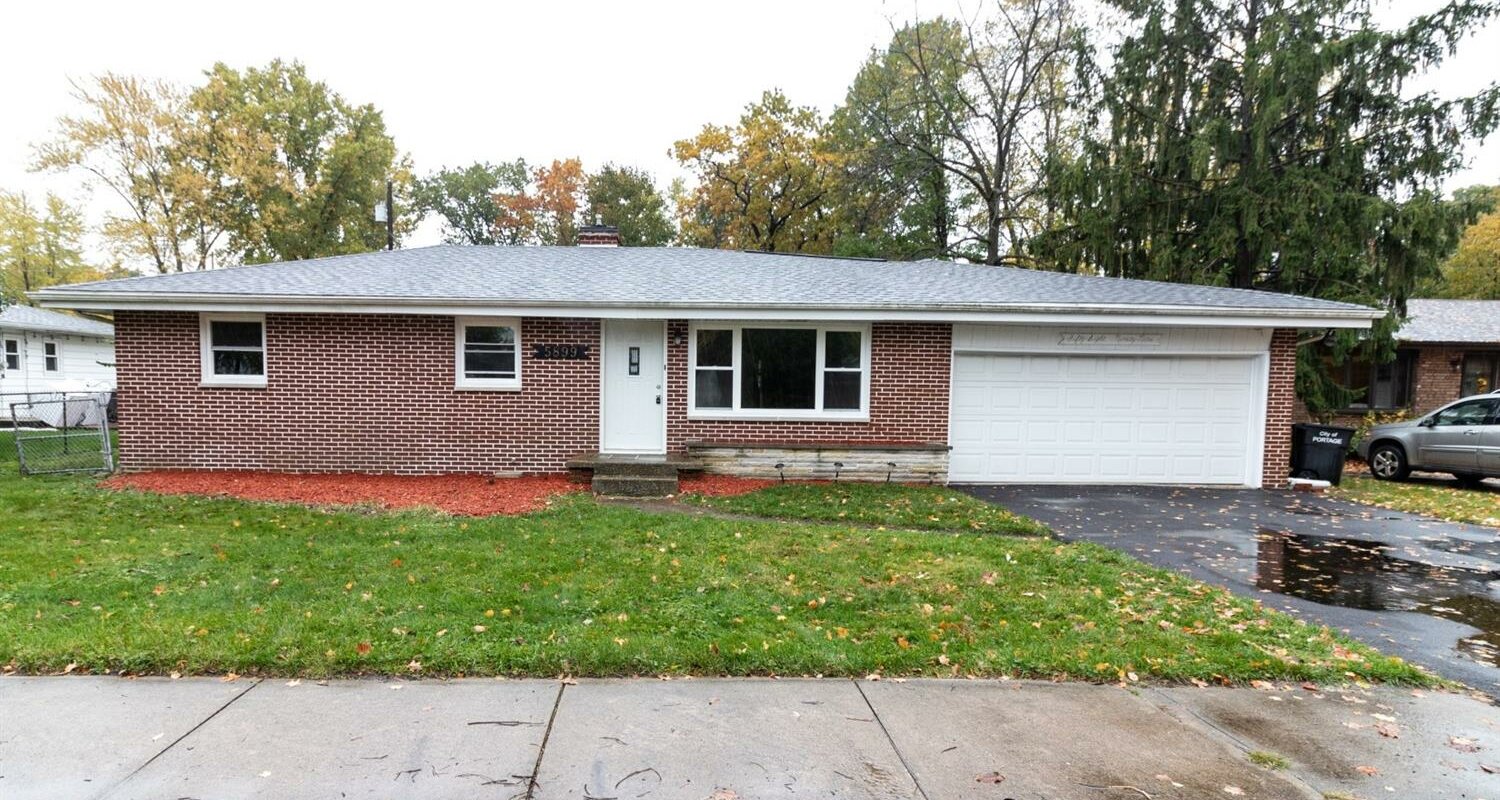Probate properties are a great opportunity for real estate investors and those looking for a discount, but what does it take for a homeowner dealing with the probate process to sell? This article is an informative resource for anyone dealing with the probate process. It will explain what is probate and how you can navigate the often tricky process to sell a property in probate while still making a profit. Coincidentally a lot of our clients are homes that were inherited or currently in probate. 8 out of 10 times probate may not be needed. It costs nothing for the title company to look at the file and determine which route we could take.
What is a Probate?
When a person passes away, whether with a will designating beneficiaries or intestate, their assets immediately become the responsibility of the executor of their estate or the Court. Probate comes in two forms: formal and informal. In an informal probate process, minimal court intervention is necessary when the estate has an original will or there is no dispute over the Heir(s)’ identity. This content focuses on the more complex formal probate process, which may be triggered when the estate has significant debt, faces will contests, or the original will is missing. In such scenarios, Court intervention becomes essential.
Can a House Be Sold While in Probate?
Indeed, selling a property in probate is possible! The ability to sell a property in probate hinges on the circumstances under which the estate was left after the individual’s passing. There are three key entities that can oversee the sale: the executor of the estate or a designated individual named in the will to oversee estate distribution; the estate administrator, appointed by the Court to manage assets in cases of intestacy, where there are heirs or beneficiaries; and finally, the Court itself in cases of intestacy where no heirs come forward for administration. Once the executor, administrator, or Court determines the rightful heirs of the property, these heirs or beneficiaries can initiate the process of petitioning for the sale of the probate property.
What Does it Take to Sell a House in Portage Indiana While in Probate?
When managing an estate, the primary duty of an executor is to safeguard the assets of the estate for eventual distribution to Heirs or beneficiaries as specified in the will. However, circumstances may arise where the estate carries substantial debts to creditors or if the property is in arrears, owing back taxes to the government. In such cases, the executor, administrator, or the Court has the authority to sell the property to settle all outstanding debts, even in the presence of Heirs.
For instance, consider an elderly woman who passes away with an appointed executor overseeing her estate, which includes two Heirs. At the time of her passing, she has accrued hospital and credit card debts totaling $90,000. Although she owns a home valued at $150,000, with no liquid assets, and owes $80,000 to the hospital and $10,000 in credit card debt. Even posthumously, the estate is responsible for clearing these debts. Should the Heirs be unable to settle the debts, the executor may have to sell the property to cover the $90,000 debt. After settling the debts, the remaining $60,000 would be divided between the two Heirs.
In cases where a property in probate is without a will and immediate Heirs, the Courts have the authority to mandate the sale of the property with any proceeds distributed to the nearest relatives.
Steps for Selling a House in Probate
If you own a property in Indiana that is stuck in probate and you’re struggling to find a way to sell, there is hope! Depending on local and state laws, the process of selling a probate property can be completed in four steps. The first step is having an executor or administrator assigned, if there wasn’t one already assigned by the deceased.
If you are assigned as the executor (or you and the executor are in agreement on how to continue), you now have the ability to decide whether to sell the property or keep it. Whether the estate owes money to creditors or you inherited a house in another state that doesn’t make sense to keep, you can decide to sell that property and walk away. But before you put up that For Sale sign, you’ll need to have the property appraised. Once that is complete, only then can you petition the Court so that you can list the property for sale on your own (FSBO) with a trusted realtor who has experience with probate properties, or sell it directly to an investor.
Decide How to Sell the Property:

Valuation or Appraisal
First up is finding out how much that property is worth. To do this you’ll need a valuation of the land by a trusted professional, or you’ll need to hire a professional appraiser that understands the law in the area as it pertains to the process of evaluating the property’s current value. In many states, the Court requires the property to be sold for at least 90% of its appraised value. That makes it even more important to find an appraiser with probate property experience that won’t balloon the worth of the land.

Listing the House
Once you have your appraisal, you, the executor, and/or your lawyer will need to file an intention to sell the house and other assets with the court. This form will include the final appraisal amount and which method you would like to use to sell the property. Methods can include auction, a traditional market sale, selling directly to an investor, and more. When the petition is approved, you are ready to list the property to let buyers know that the property is available. Whether you choose to sell the house yourself, use an experienced real estate agent, or sell directly to an investor, make sure that you have someone in your corner that has experience with probate properties.

Offers
Whether offers fly in or trickle, eventually you’ll need to decide which offer is right for you. Evaluating your goals for the sale of a house is an important part of this step. Do you need a quick sale so that you can pay off the estate’s debts? Would you prefer to wait a bit longer and see if you can get more profit from the sale? Or is the property in disrepair and needs a special buyer who can handle a complete remodel? These are all things you’ll need to take into consideration when you decide when and how to list a property in probate.
Knowing what goals you need to meet with the sale of the property will help you decide which offer to accept so that you can move on to the next step…

Notice of Proposed Action
Once a prospective buyer submits an offer, it is crucial to clarify that the transaction is subject to court approval. While this is a standard procedure mandated by disclosure laws, individuals unfamiliar with probate sales may be taken aback by the additional time required for completion. This factor often leads to probate properties being overlooked in favor of others, even when competitively priced for a quick sale. The extended approval process might dissuade some buyers who deem it too lengthy. However, for those willing to wait, the court will assess the offer before granting approval for the property’s sale.

Bidding
In the case of auctions, a property in probate can be marketed as ready to sell before the Court finalizes an Approval to Sale to help draw in more interested parties to bid. In the case of auctions, the Court often is the one who handles the bids. There are strict rules and guidelines that must be followed for this type of sale, making it only used as a last resort. Once someone has won the bidding the executor will petition the court to authorize the sale of the property, but if any of the Heirs object the sale can be canceled and the property put on hold as the Court decides the next steps.

Finalization of Sale
Hopefully, the sale of that house, condo, rental property, or piece of land is a smooth and straightforward experience. Even if you experienced a few hitches along the way, once you have an offer that the Court accepts it’s time to finalize the sale. The executor or lawyer will need to file a final account and petition for the final distribution but once the Court approves this, title documents can be signed to make the house sale official.
Who Buys Houses in Probate?
Looking to sell your house in probate? Look no further than Dan Buys Houses in Portage Indiana. We specialize in direct house buying, offering competitive cash offers with minimal stress and fees. Whether your property is in pristine condition or needs major repairs, we buy houses in any state. Let us simplify the complex probate property selling process for you. Contact us today at (219) 239-1233 for a swift and hassle-free solution.
What Do You Have To Lose? Get Started Now…
We buy houses in ANY CONDITION in Indiana. There are no commissions or fees and no obligation whatsoever. Start below by giving us a bit of information about your property or call (219) 239-1233…
Mistakes to Avoid When Selling a Probate Property

Moving Too Quickly
When a person passes away, their family may try to move as quickly as possible to sell the property so that they have time to grieve. Or, if there is debt that has interest that is compounding monthly, the executor or administrator will try to sell the house as quickly as possible by valuing it below market value to pay off the estate. Sometimes a too-fast sale can also happen when the house is in poor shape or needs major upgrades the beneficiaries do not want to pay for. They may undervalue the property so that they can sell it as-is.

Not Completing a Real Estate Disclosure
Depending on what state you live in, Real Estate Disclosure laws can be almost as tricky as the probate process! These laws are a list of issues (such as lead paint or asbestos) that must be disclosed to the buyers about a home before closing on the property.
Most states require sellers and their agents to disclose in writing “material defects” about the home. According to the National Association of Certified Home Inspectors, material defects are “…a specific issue with a system or component of a residential property that may have a significant, adverse impact on the value of the property, or that poses an unreasonable risk to people. The fact that a system or component is near, at or beyond the end of its normal useful life is not, in itself, a material defect.”
Experienced real estate agents are great at navigating these tricky waters, but what if you inherited a house that you never lived in? How would you know what to disclose? In some states, the executor, person selling the property, and/or real estate agent may be exempt from filling out local real estate disclosure forms due to the property being in probate. This is because that person does not and did not live in the property, so would have no way of knowing what to disclose.
If you are unsure of your state laws, someone who is experienced in probate real estate (whether it be a real estate agent or investor who has purchased probate properties in the past) will be able to help you navigate these legal waters. If looking into the latter option, be sure to sell your property directly to an experienced investor who doesn’t mind purchasing a property in probate and is willing to take the risk of purchasing a home from someone who is unable to give proper disclosure. You do have options!

Failing to Hire a Lawyer
We can not emphasize this enough – a knowledgeable real estate lawyer with experience in probate can help you navigate the process of probate much faster and easier than going at it alone! Not only will they know how to petition the Court so that you can finally put that property up for sale, but they’ll be able to guide you through the legal steps to sell that unwanted house or property with less hassle and tears. Even consulting will help ensure you aren’t missing the blind spots of the probate process.

Waiting Too Long to Start the Probate Process
When someone loses a loved one, grief may cause us to put everything on hold while we process the loss of the deceased in our life. But what happens to the probate property during that time? Property taxes continue to add up, utility bills continue to come in, and the bank will want its monthly mortgage payments until the property is settled. Waiting too long can cause the estate’s expenses to add up fast, eating into the estate’s assets and leaving you in a difficult situation.
Probate is the legal process of settling a deceased individual’s liabilities, distributing their assets, and closing their estate. If the decedent left a will, their assets will be distributed according to the instructions in the will. In the absence of a will, the estate is considered “intestate,” and the decedent’s assets will be distributed according to the state’s intestacy laws.
When Does Probate Begin?
It’s a common misconception that probate begins as soon as someone passes away. Probate is an intricate legal process, and it can’t begin until someone submits a copy of the decedent’s will along with a petition for probate to the county court (in the county where the decedent lived or owned property).
Can You Sell a House Before Probate Begins?
The answer to this question depends on how the house is titled. If the house is owned in joint tenancy with another individual, or as tenants in the entirety with a surviving spouse, then the surviving owner receives full ownership and has the right to sell the house before probate. If the house is titled solely in the decedent’s name or as tenants in common, nobody can sell the property before probate begins. The beneficiary, tenant in common, or executor may have the house appraised and list the property for sale if time is of the essence and they’re acting in good faith, but they can’t sell the property before probate.
Can an Executor Sell Property During Probate?
An executor (aka the personal representative) is the person appointed by the court to manage the estate during probate. The decedent’s will should nominate an executor, but in the absence of a will the court can appoint an executor. In most cases, the executor is an immediate family member, though the court has the ability to appoint a neutral third-party special administrator when necessary.
Executors have the authority to sell property during probate, though they are bound by the decedent’s will. If the will bequeaths the house to a single beneficiary, the executor should be able to transfer title of ownership to the beneficiary without selling the house. However, if there are multiple beneficiaries, or if the will specifically directs that all assets are to be liquidated before disbursement, then the executor may be required to sell the house during probate.
Abatement
One of the most common scenarios that requires an executor to sell a house during probate is when there aren’t enough liquid assets in the estate to cover the decedent’s liabilities. The process of selling assets to cover liabilities is known as abatement. When abatement is necessary, the executor won’t have any choice in the matter, and will be required by the court to sell the house in order to settle the estate’s liabilities. Once the debts and bills are paid, any residual value from the sale of the house may be transferred to the estate’s beneficiaries.
How to Sell Property During Probate
As long as the estate’s interested parties (beneficiaries, legal heirs, creditors) don’t contest the will or object to the executor’s appointments, probate can take place informally. Informal probate allows the executor to handle the estate’s affairs without court supervision, and that includes the ability to sell the decedent’s house.
If you are the executor to an estate during informal probate and it becomes necessary to sell the decedent’s house, here’s how to go about the process:
- Have the property appraised – probate laws dictate that a house in probate should be sold for at least 80% of its fair market value, so you’ll need to determine the fair market value to protect yourself against any personal liability from underselling the property. Hire a professional appraiser to determine the fair market value and compare their appraisal against comparable homes in the area that have recently sold.
- List the home for sale – hire a real estate agent to help you determine the initial asking price and list the home on the market for sale.
- Consider offers with the beneficiaries – you may have the right to act independently as the executor, but it’s a good idea to keep the beneficiaries in the loop on big decisions like this if you want to avoid objections that may lead to formal supervised probate.
- Accept an offer – when you receive an acceptable offer, the prospective buyer will need to put down at least 10% in escrow. Consider asking the beneficiaries to agree to the sale in writing, too.
- Keep copious records – don’t cut any corners when it comes to documenting and recording the sale. Make and keep copies of every document, contract, and agreement. You’ll ultimately need to submit important documents from the sale to the court with your final accounting report, and you’ll want sufficient documentation to protect yourself from personal liability if a beneficiary files a complaint with the court.
- Sell the house and gather the proceeds – after you sell the house, gather the proceeds from the sale into an estate checking or savings account. From there, you can use the funds to settle the estate’s liabilities and disburse any residual value to the beneficiaries.
Intestate Succession
In cases where the house is not covered by a will (excluding joint tenancy and tenancy in the entirety), the court will transfer title of the house to the decedent’s legal heirs according to the state’s intestacy laws.
- If the decedent was married and did not have any children with another partner, the house would go to the surviving spouse
- If the decedent was married and had children with another partner, the house would be split between the surviving spouse and the children
- If there isn’t a surviving spouse, the house would go to the decedent’s children by representation]
- If there isn’t a surviving spouse or children, the house would go to the decedent’s parents by representation (by extension that includes the decedent’s siblings, nieces and nephews)
- If there isn’t a surviving spouse, children, parents, siblings, or nieces and nephews, the house would go to the decedent’s grandparents by representation (by extension that would include aunts, uncles, and cousins)
Do You Need Help with Probate Matters?
As you can see, probate laws can be complex. It requires a number of steps and without the right approach, it’s easy to get lost in the details.
At JacksonWhite, we can make probate a clear, easy-to-understand process.
We can help explain your legal options and direct you to the probate solution that works for you and your loved ones.
Who Buys Houses in Probate?
We do! Dan Buys Houses is a direct house buying company that has built our reputation on buying houses for cash with less stress and less fees. Contact us today and get a competitive cash offer for that house or property that’s stuck in probate. We buy homes in any condition. We can help you with the convoluted process of selling a house in probate, making the process faster and as stress-free as possible.
What Do You Have To Lose? Get Started Now…
We buy houses in ANY CONDITION in Indiana. There are no commissions or fees and no obligation whatsoever. Start below by giving us a bit of information about your property or call (219) 239-1233…

